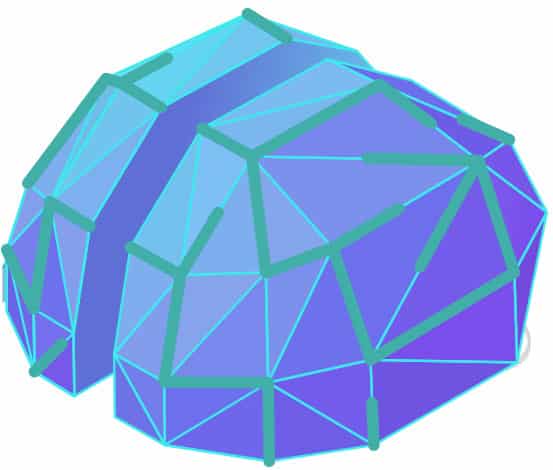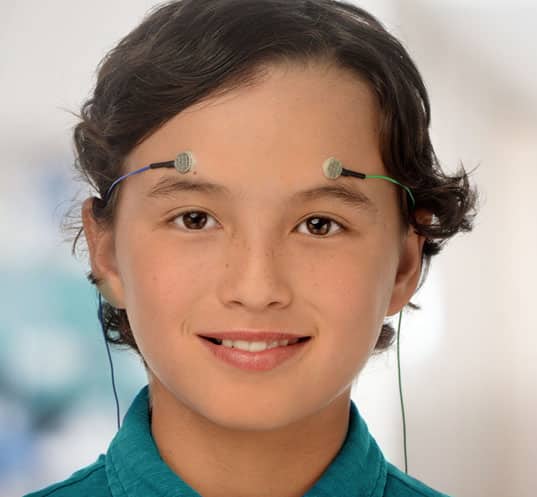LANC and Reading Disabilities (Dyslexia)
According to the NIH’s National Institute of Child Health and Human Development, “Reading disorders occur when a person has trouble with any part of the reading process. Reading and language-based learning disabilities are commonly referred to as dyslexia. These disorders are present from a young age and usually result from specific differences in the way the brain processes language.“
For our purposes, we will use “Dyslexia” as a catch-all for reading disabilities. Dyslexia is considered a developmental disorder present (if not recognized) from early childhood; although, in rare cases such as brain injury and dementia, it can be acquired. Dyslexia is neurologically based; i.e., it is a result of anomalies in brain function. Dyslexia is characterized by slow reading and difficulty decoding words, which results in slow and painful reading, switching letters within a word, substituting one small word (“i”, “the”, “a” ) for another, and difficulty recalling or understanding known words. Dyslexia does not result in poor reading comprehension, but may exacerbate it.
The exact cause of Dyslexia is unknown. Although, research points to hereditary factors, low birth weight, and exposure to nicotine or other drugs in the womb as possible contributing risk factors.
Reading disorders are notintellectual disorders and do not indicate low intelligence or inability to learn. Reading disorders should not be confused with reading difficulties caused by issues with vision or hearing or inadequate instruction.
Contact (323) 705-3031 to Schedule an Appointment & Get Started On Dyslexia Help Today!
Traditional Options and Results
There is no fix-all for Dyslexia – it is a lifelong disorder. Dyslexia is addressed with a wide variety of compensatory methods. In other words, the person with Dyslexia learns to deal with the effects of Dyslexia to become a more effective reader and educators working with children with Dyslexia learn teaching methods that maneuver around the symptoms.
In cases where Dyslexia affects schoolwork, a child in school would be entitled under the Americans With Disabilities Act to an Individual Education Plan (IEP), which might include using recordings rather than reading materials, use of a laptop or tablet computer rather than pencil-and-paper, and accommodations during tests. Different methods of teaching reading, primarily focusing on phonics and phonemic skills as well as multi-sensory teaching work, but must be applied correctly and consistently by teachers extensively trained in those techniques.
How Does DNF Relate To Reading Disabilities
In many cases of Dyslexia, a child’s brain experiences anomalies in brain waves that lead to reading difficulties. In some cases, the child will develop compensating strategies on their own and develop alternative neural pathways.It should be noted that self-developed compensatory strategies can actually be a disadvantagein some circumstances.
In many cases however, the disruption in brain waves is so pronounced that the child is unable to form compensating strategies on their own. As one Yale University study put it, “…in persistently poor readers, the neural circuitry for reading was present but improperly connected…”
DNF encouragesthe brain to create new, better-functioning pathways and to improve the means by which one processes sounds and language. While there is some debate regarding how effective DNF is in addressing symptoms of Dyslexia, there is a general agreement that it doeshelp. In addressing Dyslexia, DNF does not cause changes in brainwaves but rather normalization of coherencebetween them. One study published by the National Institute for Biotechnology Information put it this way: “These significant changes in coherence possibly indicate integration of sensory and motor areas that explains the improvements in reading skills and phonological awareness.” Interestingly, there is substantial agreement that children who undergo DNF show significant improvements in spelling.

Neurofeedback was very helpful for my peace of mind and happiness. Meg is very helpful and genuinely caring to help above and beyond! Highly recommended.
– D. Songhorian, Los Angeles Client


How LANC Can Help With Dyslexia
As we explained above, LANC’s DNF program can help the brain to reset its neural pathways to function more effectively. While DNF cannot eliminate the effects of Dyslexia, it may serve to lessen those effects and allow the child to more effectively use the compensating strategies they are being taught. In other words, through DNF, the child is better ableto learn compensating strategies and make them permanent(i.e., habitual).
20 to 40 percent of children with Dyslexia also have some form of ADHD with symptoms that overlap each other. LANC has considerable experience working with students with ADHD, and DNF can be effective in both instances. See our page on ADHD [link] for more information about LANC and ADHD.
It is inevitable that a child with reading disabilities will be made aware of their disability. This can often result in Anxiety, Depression, and self-esteem issues that may make their difficulties more pronounced and cause a reduction in the effective use of the compensatory strategies they have learned. DNF can help with these secondary effects as well – see our pages on Anxiety and Depression for more information. Even though in these cases the difficulty is not necessarily neurological, DNF can calm the manifestations and severity of these feelings.
As in all cases, LANC sessions do not require any action on the part of the client, which should help alleviate any feelings of anxiety or depression they may be experiencing.
Contact (323) 705-3031 to Schedule an Appointment & Get Started On Dyslexia Help Today!


Start Dyslexia Help
Schedule Your Session Today
- Call our 24hr appointment line at (323) 705-3031 to schedule your $87 Special Initial Consultation and Session
- Fill out New Client Form
- Experience your first session of Direct Neurofeedback and map out your customized approach to achieving brain wellness with your neurocoach
A LANC Direct Neurofeedback practitioner will be happy to schedule your initial one-hour session. During this appointment, your practitioner will discuss your condition, address your concerns, and perform your first Direct Neurofeedback session. This initial intake session costs only $87.00 and is the first step towards gaining strength and confidence in reading skills.



“Loved my experience with Meg Stuppy and would highly recommend getting this treatment."
– K. Werner, Los Angeles Client
Ongoing Sessions & Expectation Using Direct Neurofeedback
Subsequent sessions are 30minutes long and it is recommended that a minimum of 2 sessions be completed per week, for the first 3 weeks. Sessions are then spaced out depending on how long the results are enduring for the client.
Clients can often tell in the first session or two if Direct Neurofeedback will be the beneficial for them to continue. An average of 15-20 sessions total are required for enduring results. For clients who are only in town for a short amount of time, sessions can be done on back-to-back days so that 20 sessions can be completed over a few weeks period.
LOS ANGELES NEUROFEEDBACK CENTER TEAM


WEST LA OFFICE
12121 Wilshire Blvd., Suite 810
Los Angeles, CA 90025
Phone: (323) 705-3031
HOURS OF OPERATION
Monday – Friday: 7:00am – 7:00pm
Saturday: 8:30am – 7:00pm
Sunday: 9:00am – 6:30pm
SCHEDULE APPOINTMENT
To schedule an appointment with a neurofeedback specialist, please click the button below:







